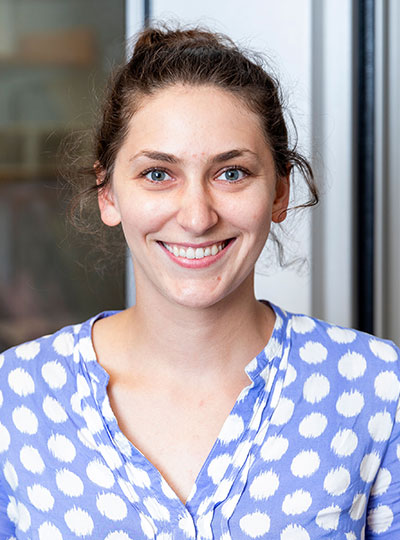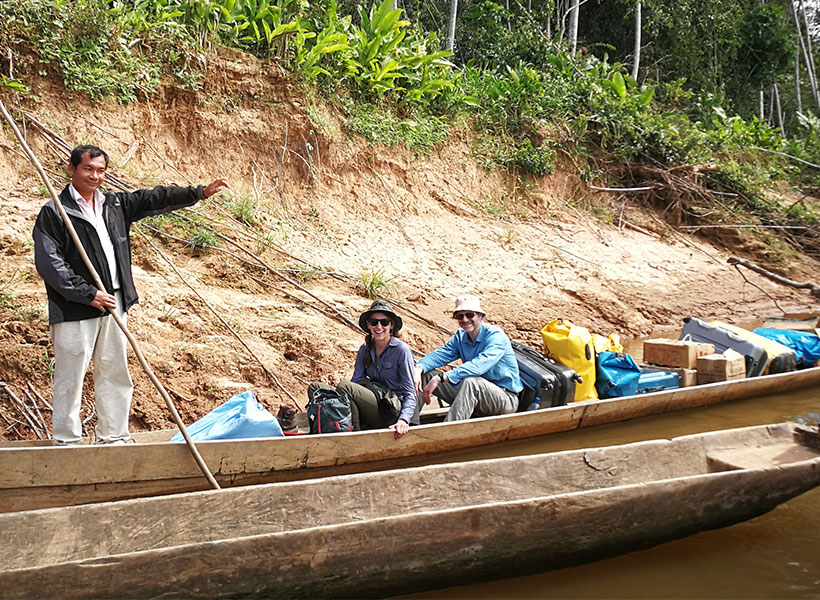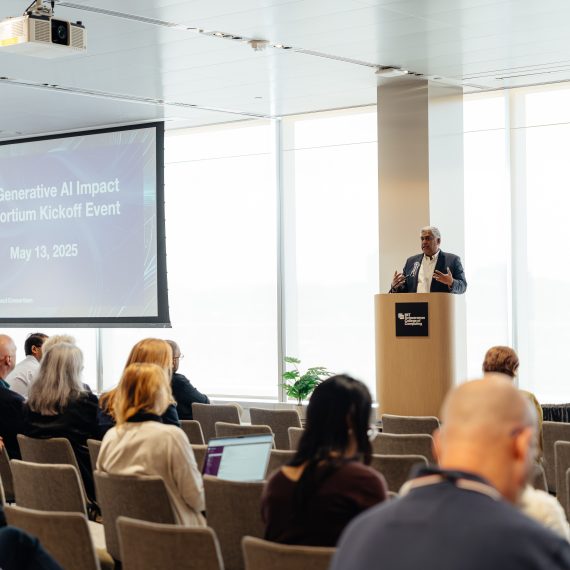Brain science in the Bolivian rainforest
McGovern graduate student Malinda McPherson goes to extremes to study how the brain unpacks sound.


Malinda McPherson is a graduate student in Josh McDermott‘s lab, studying how people hear pitch (how high or low a sound is) in both speech and music.
To test the extent to which human audition varies across cultures, McPherson travels with the McDermott lab to Bolivia to study the Tsimane’ — a native Amazonian society with minimal exposure to Western culture.
Their most recent study, published in the journal Current Biology, found a striking variation in perception of musical pitch across cultures.
In this Q&A, we ask McPherson what motivates her research and to describe some of the challenges she has experienced working in the Bolivian rainforest.
What are you working on now?
Right now, I’m particularly excited about a project that involves working with children; we are trying to better understand how the ability to hear pitch develops with age and experience. Difficulty hearing pitch is one of the first issues that most people with poor or corrected hearing find discouraging, so in addition to simply being an interesting basic component of audition, understanding how pitch perception develops may be useful in engineering assistive hearing devices.
How has your personal background inspired your research?
I’ve been an avid violist for over twenty years and still perform with the Chamber Music Society at MIT. When I was an undergraduate and deciding between a career as a professional musician and a career in science, I found a way to merge the two by working as a research assistant in a lab studying musical creativity. I worked in that lab for three years and was completely hooked. My musical training has definitely helped me design a few experiments!
What was your most challenging experience in Bolivia? Most rewarding?
The most challenging aspect of our fieldwork in Bolivia is sustaining our intensity over a period of 4-5 weeks. Every moment is precious, and the pace of work is both exhilarating and exhausting. Despite the long hours of work and travel (by canoe or by truck over very bumpy roads), it is an incredible privilege to meet with and to learn from the Tsimane’. I’ve been picking up some Tsimane’ phrases from the translators with whom we work, and can now have basic conversations with participants and make kids laugh, so that’s a lot of fun. A few children I met my first year greeted me by name when we went back this past year. That was a very special moment!

What single scientific question do you hope to answer?
I’d be curious to figure out the overlaps and distinctions between how we perceive music versus speech, but I think one of the best aspects of science is that many of the important future questions haven’t been thought of yet!




